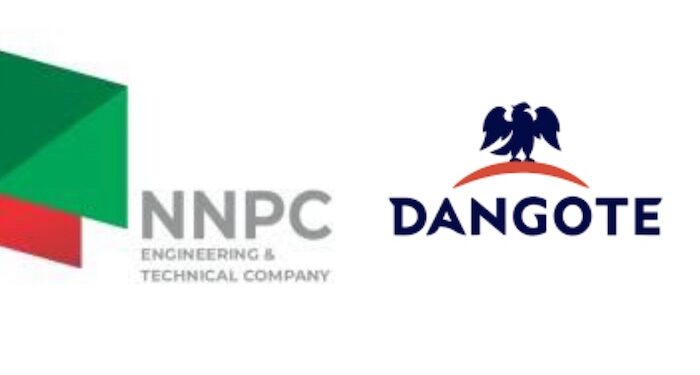The Nigerian National Petroleum Corporation (NNPC) Limited and select oil marketers have spent over N5.5 trillion on the importation of Premium Motor Spirit (PMS), commonly known as petrol, and diesel (AGO) between October 1, 2024, and January 31, 2025, according to recent reports. This comes despite the operational status of the Dangote Refinery and the restart of the Warri and Port Harcourt refineries.
The Dangote Refinery is currently in a legal battle with the Nigerian Midstream and Downstream Petroleum Regulatory Authority (NMDPRA), the NNPC, and other oil marketers. The refinery is seeking to compel the regulator to halt the issuance of import licenses for fuel, arguing that Nigeria now has sufficient domestic refining capacity.
Fuel Import Figures and Costs
Port documents reveal that over 3.2 million metric tonnes of petrol and 980,485 metric tonnes of diesel were imported during the four-month period. Using conversion factors of 1,341 litres per metric tonne for petrol and 1,176 litres per metric tonne for diesel, this translates to approximately 4.29 billion litres of petrol and 1.153 billion litres of diesel. The total cost of these imports exceeded N5.5 trillion, based on average landing costs.
Major importers during this period included NNPC, BOVAS, Eternal Oil, AA Rano, Fatgbems, Matrix Energy, Ibeto, Swift, Raj, T-Time, Wosbab Energy, NorthWest, Sobaz, TS Logistics, Shorelink, Stockgap, MEJ, Nepal, Rainoil, and AYM Shafa, among others. The imported products arrived through ports in Lagos, Calabar, Warri, and Port Harcourt.
NNPC’s Defense and Economic Considerations
The NNPC has defended its decision to continue importing fuel, citing economic factors such as pricing. “While NNPC prioritises sourcing products from domestic refineries, this is contingent upon economic viability. If local supply is cost-effective, it will be preferred, but the same principle applies to other marketers,” the corporation stated.
However, the Dangote Refinery has ramped up production to 550,000 barrels per day (bpd), surpassing Nigeria’s daily consumption of 385,000 bpd. Despite this, the refinery has faced challenges in securing adequate crude oil supplies from the NNPC under the naira-for-crude deal, which aims to reduce reliance on the US dollar for domestic transactions.
Crude Supply Shortfalls and Dangote’s Efforts
Under the naira-for-crude agreement, the Dangote Refinery is expected to pay for crude oil in naira and sell refined products to marketers in the local currency. However, crude oil allocations to the refinery have fallen short of the agreed 385,000 bpd. For instance, in February 2025, only four cargoes were allocated, and for March, just two cargoes of 950,000 barrels each (1.9 million barrels) were booked, representing a daily allocation of 61,290 bpd.
Sources close to the Dangote Refinery revealed that the facility has been absorbing logistics costs to ensure uniform pricing across the country, effectively taking on a role traditionally handled by the government. The refinery has also entered into agreements with major marketers like MRS, Heyden, and Ardova, as well as the Petroleum Products Retail Outlet Owners Association (PETROAN), to distribute its products nationwide.
Regulatory Allocations and Dollar Transactions
The Nigerian Upstream Petroleum Regulatory Commission (NUPRC) allocated 1.4 million barrels of crude for March 2025, with NNPC receiving 17 cargoes (35 per cent), Dangote Refinery receiving five, Warri Refinery two, and Port Harcourt Refinery three. The remaining seven cargoes were allocated to financiers as part of loan repayments.
Despite a presidential directive to sell crude oil in naira, transactions are still partially conducted in US dollars. Of the five cargoes allocated to the Dangote Refinery, two will be paid for in naira, while the remaining three will be settled in dollars from export proceeds.
Conclusion
The ongoing dispute over fuel imports and crude oil allocations highlights the complexities of Nigeria’s energy sector. While the Dangote Refinery aims to reduce the country’s reliance on imports, challenges in crude supply and regulatory hurdles continue to hinder its full potential. As stakeholders navigate these issues, the need for a balanced approach to ensure energy security and economic viability remains critical.


